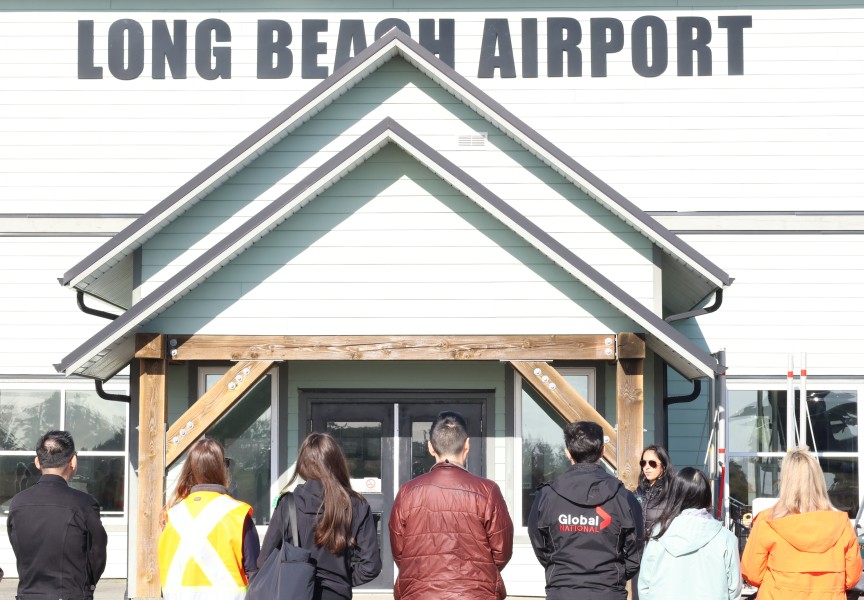Amid the rapid changes that affect many industries today, it can be difficult for a young person to find a stable career path. But for Mercedes Brown, the health care field appears to be offering the closest thing to guaranteed work.
This week Brown is undertaking the second week of her practicum towards earning a certificate from the Health Care Assistant program, the final stage of a one-year course of study being offered at North Island College in Port Alberni.
“I’ve always been interested in the health care field,” said Brown outside the Alberni Athletic Hall on June 16, where the college held its graduation ceremony. “My end goal is to become an RN.”
As a member of the Tla-o-qui-aht First Nation, Brown is taking advantage of a partnership between NIC and the Nuu-chah-nulth Tribal Council. This collaboration allowed the college to offer a Health Care Assistant program with a Nuu-chah-nulth focus this year, separate from the standard care aid training that NIC normally provides. The nine students currently in this class are set to complete their studies in August.
With the assistance of an elder in residence, these students receive some training specific to the needs of older Nuu-chah-nulth people.
“We actually have a cultural class every Friday,” said Brown, who is currently doing her practicum at the Tsawaayuus Rainbow Gardens residential care home in Port Alberni. “Getting to know the clients is a big part of it, having patience, giving them time.”
That expertise appears to be a growing commodity in the labour market. Island Health expects that the number of Alberni Valley residents over 75 will double in the next 20 years, while the Vancouver Island Economic Alliance predicts the highest employment growth in health-related professions.
The number of long-term care beds in the region is expected to increase, and with this comes a greater demand for health care assistants. But this line of work isn’t easy, said the NIC program’s instructor Kim Fraser.
“You have to have a natural compassion for others,” she said. “You need to be able to communicate with people who can’t verbally communicate anymore. Maybe they’ve had a stroke, maybe they have Alzheimer’s disease and they’re making noises that we have to read…your communication skills have to be really superb.”
Early childhood education is also high on the list of professions with expected growth, according to WorkBC. This is another program North Island Collage has focused on in recent years, as 23 ECE students were recognized at the school’s graduation event on June 16.
Besides classes at the Port Alberni campus, this course has also been offered in Ahousaht for the last year. The initiative began when the Ahousaht First Nation approached the college with a need for its community, said Dr. Kathleen Haggith, Dean of the Faculty of Health and Human Services.
“Conversations began a number of years ago where it was identified that there were a number of interested applicants in Ahousaht,” she said.
Ahousaht’s on-reserve population has steadily grown in recent years, bringing the need for more expertise in daycares, said Theresa Gereluk, co-chair of the Department of Early Childhood Care and Education.
“There’s been numerous births over the last five to six years out there,” she said. “Their daycare and the Head Start program, the pre-school program, were running at max. They knew there was going to be a need for other workers out there.”
Many of the early childhood students have young families of their own. By offering courses in the Ahousaht community these parents aren’t forced to separate from their own children, said Haggith.
“They can stay within the community and be supported within the community,” she said, adding that part of the role of the college is to listen to what Vancouver Island’s communities need. “Often times it’s starting those conversations, building those relationships. Then when a funding opportunity become available, or arises, we’re able to try and address that by supporting, encouraging and cultivating those conversations.”







